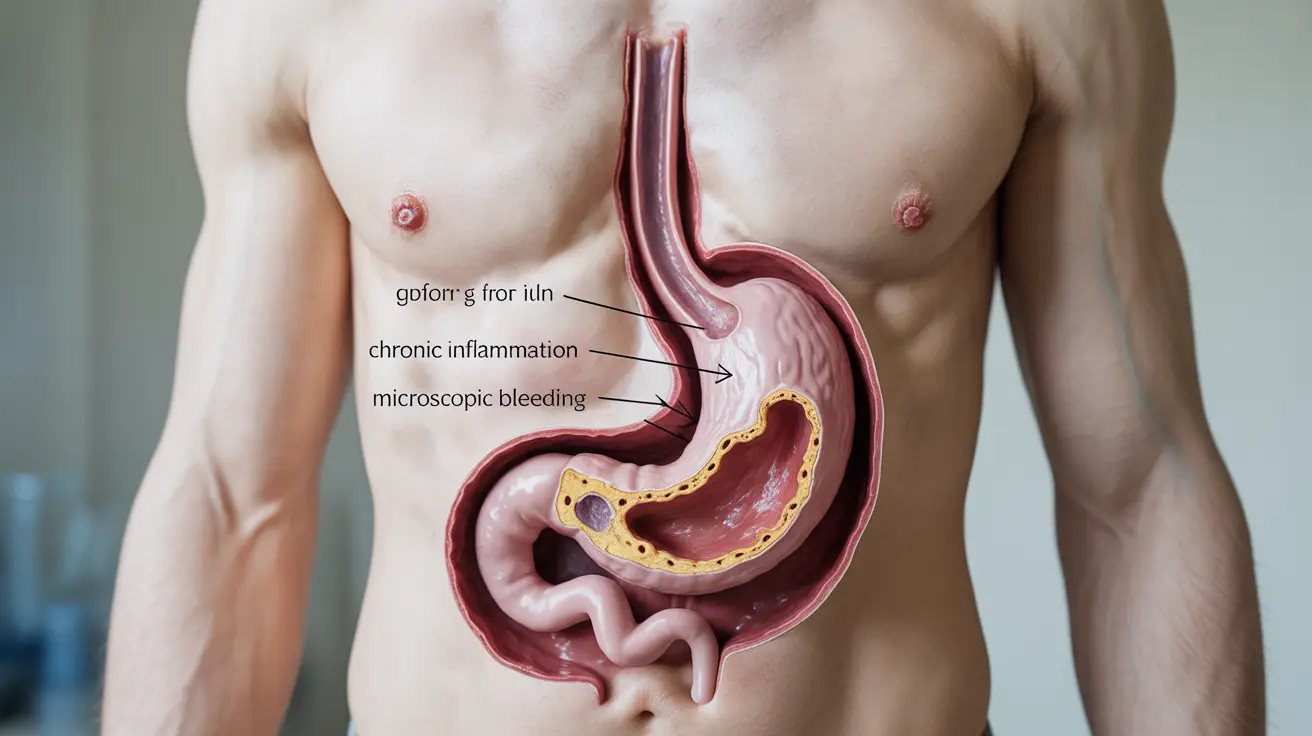A hiatal hernia's connection to iron deficiency anemia represents a significant health concern that often goes unrecognized. When the upper part of the stomach pushes through the diaphragm into the chest cavity, it can create a cascade of effects that impact iron absorption and potentially lead to anemia. Understanding this relationship is crucial for proper diagnosis and treatment.
This comprehensive guide explores the intricate relationship between hiatal hernias and anemia, including symptoms, treatment options, and when surgical intervention might be necessary. By understanding these connections, patients can better advocate for their health and work with healthcare providers to develop effective treatment strategies.
The Link Between Hiatal Hernia and Iron Deficiency
A hiatal hernia can significantly impact iron absorption through several mechanisms. The abnormal positioning of the stomach can lead to chronic inflammation and microscopic bleeding in the stomach lining. Additionally, many patients with hiatal hernias experience reduced acid production, which is essential for proper iron absorption from food.
The mechanical stress on the stomach tissue can also create small erosions or ulcerations that result in chronic blood loss, further contributing to iron deficiency. This ongoing process often develops gradually, making it difficult to identify without proper medical attention.
Recognizing the Warning Signs
The symptoms of anemia related to hiatal hernia often develop gradually and may include:
- Persistent fatigue and weakness
- Shortness of breath
- Pale skin
- Dizziness or lightheadedness
- Cold hands and feet
- Chest pain or heartburn
- Irregular heartbeat
These symptoms may be complicated by typical hiatal hernia symptoms such as acid reflux, making it essential to consider both conditions when seeking medical evaluation.
Conservative Treatment Approaches
Initial treatment typically focuses on non-surgical interventions to address both the hiatal hernia and the resulting anemia. This multi-faceted approach often includes:
- Oral iron supplementation
- Acid-reducing medications
- Dietary modifications
- Position changes during sleep
- Weight management strategies
Success with conservative treatment requires consistent monitoring and may need adjustment based on individual response and severity of symptoms.
Surgical Considerations and Timing
When conservative treatments prove insufficient, surgical repair of the hiatal hernia may become necessary. Key indicators for surgical intervention include:
- Persistent anemia despite iron supplementation
- Significant symptoms affecting quality of life
- Large hernia size
- Complications such as strangulation or severe reflux
The decision to pursue surgery should be made carefully, considering both the severity of anemia and the overall impact on the patient's health.
Frequently Asked Questions
How does a large hiatal hernia cause iron deficiency anemia? A large hiatal hernia can cause iron deficiency anemia through chronic inflammation, reduced stomach acid production, and microscopic bleeding from the affected tissue. These factors combine to impair iron absorption and increase iron loss from the body.
What are the common symptoms of anemia linked to hiatal hernia? Common symptoms include fatigue, weakness, shortness of breath, pale skin, dizziness, and cold extremities. These may occur alongside typical hiatal hernia symptoms like heartburn and chest discomfort.
How is anemia from a hiatal hernia treated without surgery? Non-surgical treatment typically involves iron supplementation, acid-reducing medications, dietary modifications, and lifestyle changes. Regular monitoring of iron levels and adjustment of treatment plans is essential for success.
When is surgical repair recommended for a hiatal hernia causing anemia? Surgical repair is recommended when conservative treatments fail to resolve the anemia, when the hernia is large, or when complications develop. The decision is based on individual factors including symptom severity and overall health status.
Can iron supplements and acid-reducing medications fully resolve anemia caused by a hiatal hernia? While iron supplements and acid-reducing medications can help manage symptoms, they may not fully resolve anemia if the underlying hiatal hernia continues to interfere with iron absorption or cause ongoing blood loss. Some patients may require surgical intervention for complete resolution.




